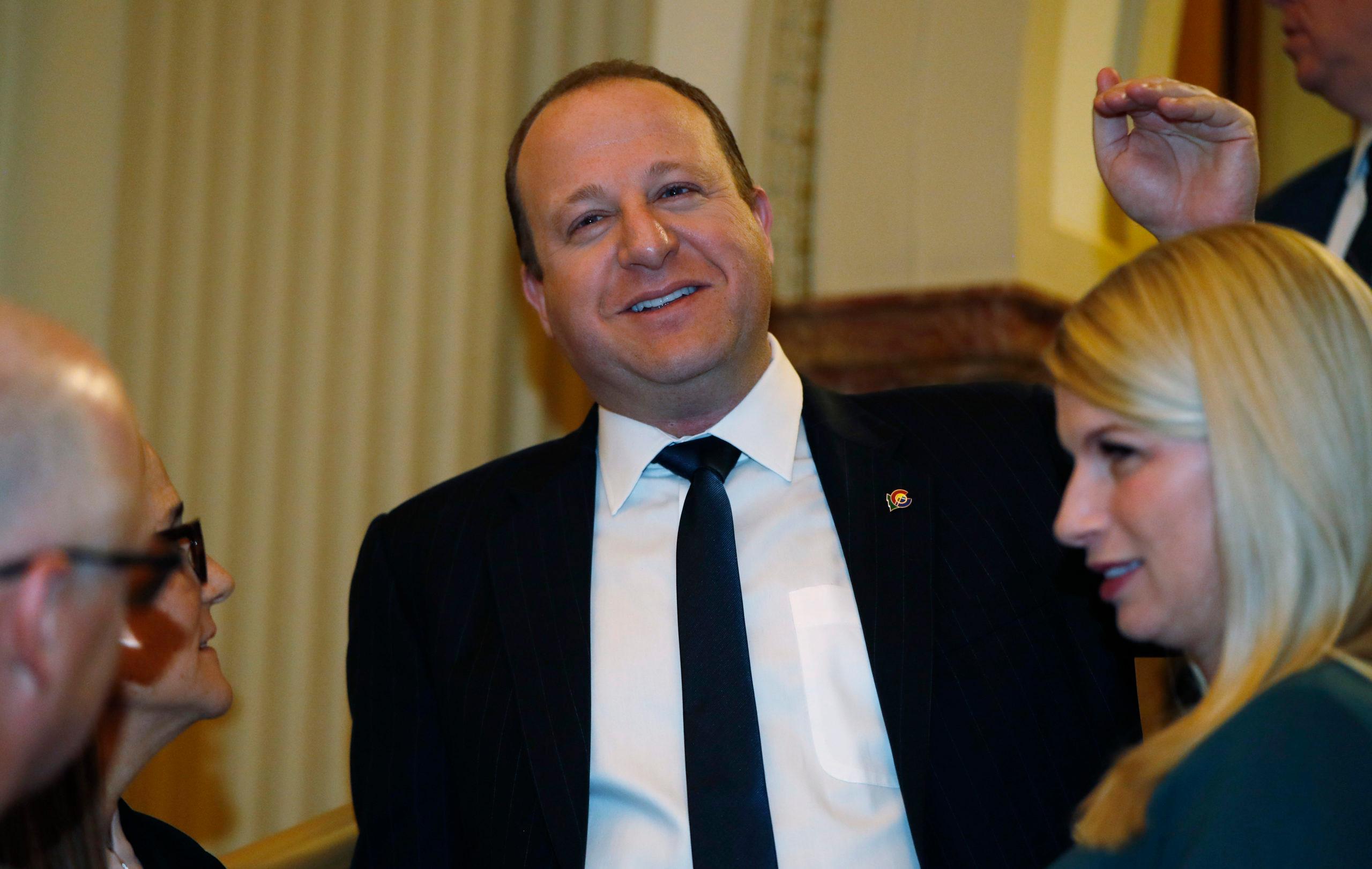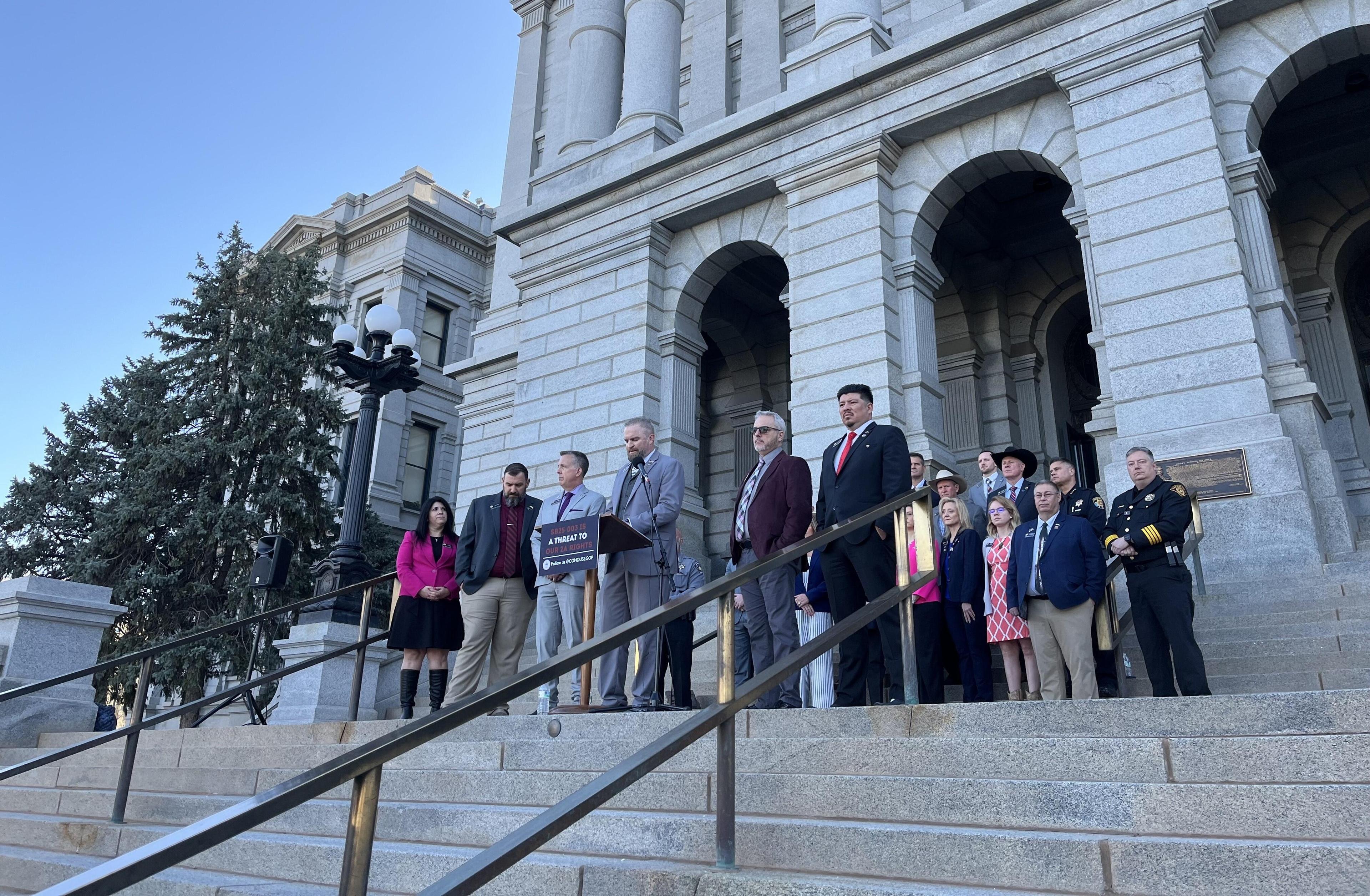
Gov. Jared Polis hasn’t given up on his push for eight weeks of paid family leave for state employees. The legislature’s powerful budget committee voted unanimously last week to reject his proposal.
Now he’ll double down on the effort.
“At a time when 1 in 5 positions in state government are vacant, it is imperative that we stay competitive as an employer,” Polis stated in a release his office distributed to the media Tuesday evening.
The governor said the cost to backfill critical positions for state workers who take time to care for loved ones or welcome a baby is about $10 million. Part of that comes out of the general fund, potentially at the cost of other priorities. He also noted that the state workforce of 30,000 doesn’t currently have access to any medical leave.
“This modest proposal, when paired with our requests for a pay raise for workers, would bring about real change and ensure that Colorado becomes an ‘employer of choice.’”
So far, some budget committee members appear unmoved by his latest appeal. They say there are still many unanswered questions, both about the policy, and how Polis is trying to enact it through the budget process. The governor included a memo from the Colorado Attorney General’s office that concluded the executive branch had the authority to adopt and implement a paid leave program for state workers.
Legislative attorneys disagree and point to a portion of the law that gives state lawmakers the final say.
“We turned down the request based on concerns raised by nonpartisan staff that the proposal does not have statutory authority, gives up legislative power to the governor, and needs more vetting,” said Democratic Joint Budget Committee chair Rep. Daneya Esgar of Pueblo. She added that she’s committed to getting something done this session for state workers.
“We will be continuing conversations on this important issue and many others in the coming weeks and months.”
Democratic Sen. Dominick Moreno of Commerce City, the JBC’s vice-chair, said he’s still bothered by how Polis’ office responded when the committee first voted down his plan; the governor’s spokesman urged the committee to “reconsider the importance of our state employees and provide this important benefit.”
One senior staffer for the governor called the committee’s vote curious and was “saddened by the message it sends to state workers.”
Moreno said those remarks implied “that JBC isn’t upholding our values or commitment to state employees. Inflammatory comments like that aren’t helpful in finding a solution on this issue.”
One sticking point in this debate: At the same time Polis is pushing to extend paid family leave to state employees, he’s also come out in opposition to a Democratic plan that would cover most or all of the private workers in Colorado.
First proposed in 2015, advocates were hopeful a bill would pass when Democrats gained control of the legislature last session, but it failed to gain traction. Supporters of paid leave said they would not compromise on the length of leave or which workers could qualify, and wanted to define family members broadly to be fully inclusive. Instead, they settled for a task force that studied the idea of a state-run model during the legislative off-season.
For his part, Polis, and a few other Democrats joined with Republicans and the business community to raise concerns about whether a state-run system would be financially sound and how it would impact businesses. This session, Polis announced he wants to keep the private sector involved in any effort to extend paid leave, not implement a state-run program.
Some business groups have privately said they may be able to get on board with Polis’ model.
Democratic Sen. Faith Winter of Westminster sponsored the previous bill and plans to bring forward a new paid family leave measure this year. She said the final details are still being negotiated but talks have been productive and she expects to introduce something soon.
“I am optimistic that with both the Joint Budget Committee and the governor we can find a solution that provides all employees in Colorado paid family leave,” she said.
Winter reiterated that any proposal she gets behind would apply to employees in both the public and private sectors.









